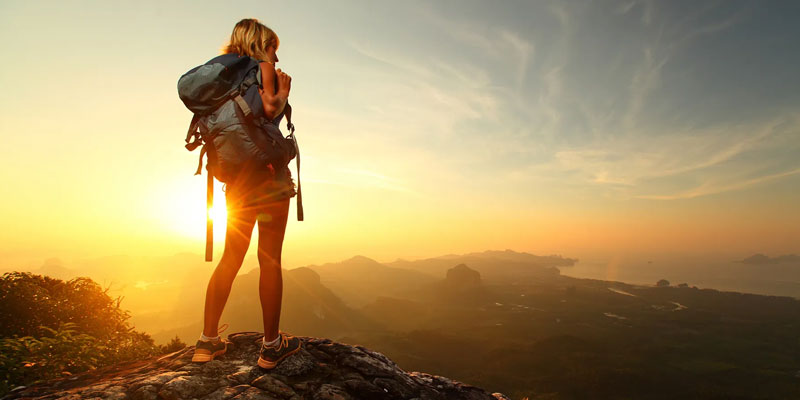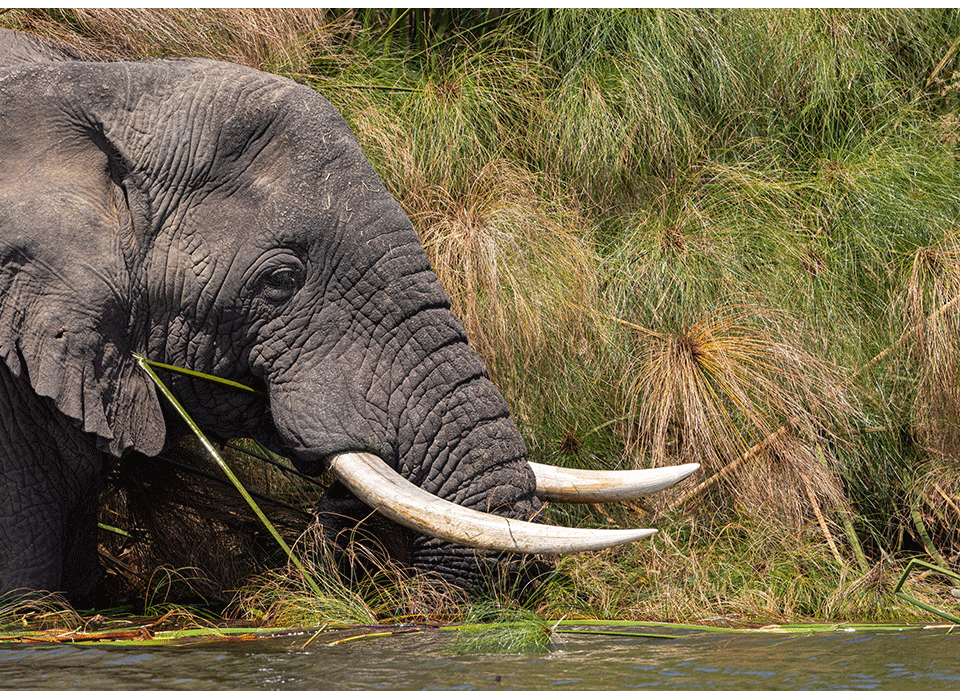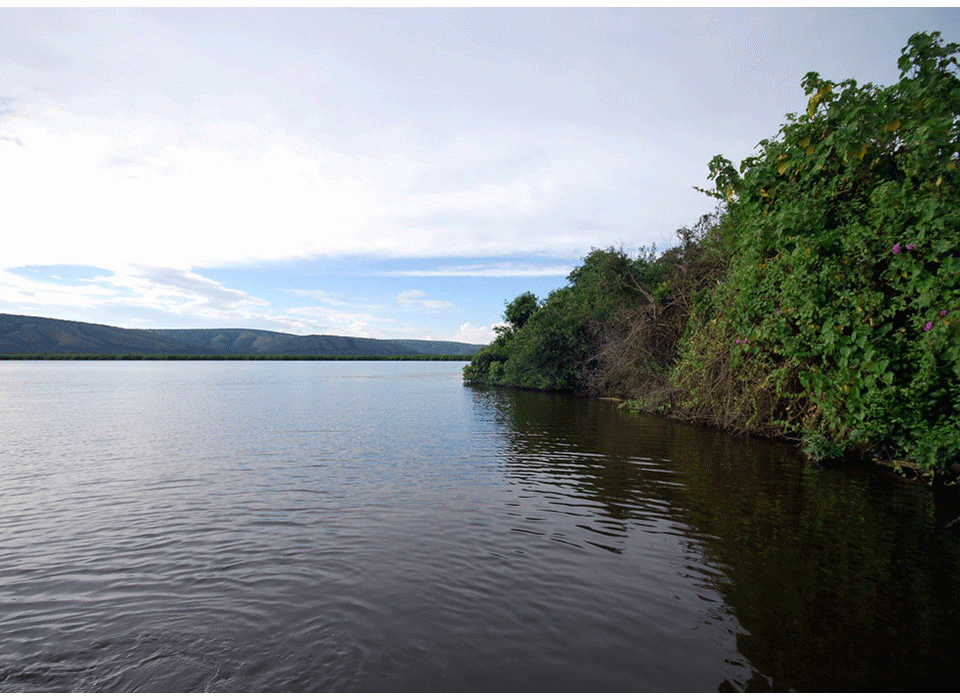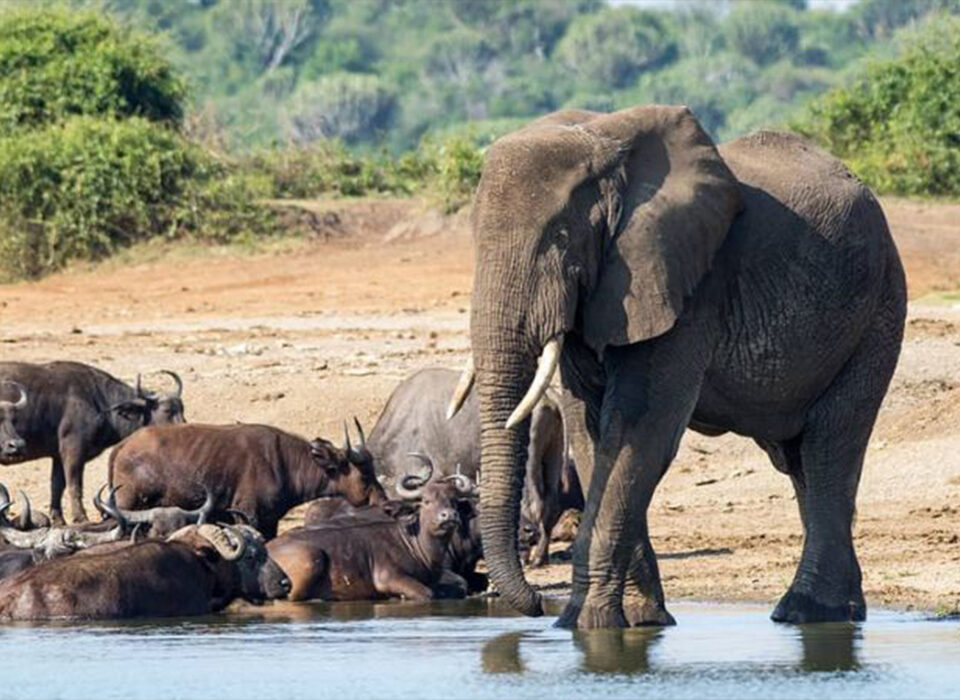
Can I self-drive through Uganda’s national parks?
November 6, 2025
How much should I budget for a 10-day safari in Uganda?
November 6, 2025Is Uganda safe for solo travelers?
Uganda, fondly referred to as the “Pearl of Africa,” is one of the most captivating destinations in East Africa – blessed with natural beauty, varied wildlife, and some of the warmest people on the continent. From the mist-shrouded mountains of Bwindi to the open expanses of savannah grasslands in Murchison Falls, Uganda has much to offer the intrepid traveler. But if you’re considering traveling alone, perhaps the same question crosses your mind as it does many first-time visitors: Is Uganda safe for solo travelers?
Absolutely; Uganda is generally a very safe destination for solo travelers, considering you apply your common sense, plan in advance, and take normal precautions that any traveler would. The country is friendly, vibrant, filled with welcoming locals ready to share their culture and make visitors feel at home. Though not without its challenges, every destination does, the growing tourism base and strong hospitality culture within Uganda make it one of the best destinations in Africa for independent explorers.
In this article, we’ll go into the details of what solo travellers might encounter in Uganda — from safety and locals to transportation and accommodation tips — so you can plan your trip with confidence.
The General Safety Situation in Uganda
In the last ten years, Uganda has made massive improvements in safety, infrastructure, and tourism management. It is a matter of government and UWA policy to protect visitors in the national parks, and tourism zones are among the most secure areas in the country. Rangers, police, and community tourism programs all play a role in maintaining peace and ensuring that travelers can explore without worry.
Most incidents affecting tourists in Uganda are minor and usually involve petty theft in crowded urban areas, such as pickpocketing or bag snatching, which can happen to anyone anywhere in the world. Violent crime against tourists is very rare. When traveling solo, staying alert in markets and bus stations and keeping valuables out of sight, combined with using reputable transport providers, goes a long way toward ensuring a smooth journey.
Uganda is politically stable, and tours in areas such as Entebbe, Kampala, Jinja, Fort Portal, and Kabale are safe for foreigners. Police presence is evident in all major towns; locals are used to the presence of foreigners, especially in safari areas.
The Warmth of Ugandan People
The first thing most solo travelers notice when arriving in Uganda is how warm and friendly its people are. Ugandans are an innately hospitable and curious lot, and often strangers greet you with a genuine smile and ask where you’re from. Solo travelers frequently comment that they never truly feel “alone” here.
In the smaller towns, locals may take you up on an invitation to tea or share a story with you about their community; in safari lodges, staff will go out of their way to make you comfortable and safe, and often know your name and preferences by day two. Ugandans appreciate respect and politeness, too, so smiling at people and greeting them or simply saying “webale” will go a long way in evoking positive interactions.
Traveling Between Destinations
Outside of Kampala, Uganda’s roads have greatly improved, and most major routes between cities and national parks are now well-paved. However, for solo travelers, it’s a good idea to use private transfers or take a reputable tour company for long-distance traveling. Public transportation-matatus and boda-bodas-are chaotic and quite unsafe.
If you like independence, there are self-drive options available, but the first-time visitor will find Uganda’s traffic rules and driving styles challenging. Alternatively, one may hire a private driver-guide, which provides freedom while ensuring local expertise and safety.
Domestic flights are also an excellent way to move quickly and safely between destinations like Entebbe, Murchison Falls, Queen Elizabeth National Park, and Bwindi Impenetrable Forest. Airlines such as Aerolink and Bar Aviation operate reliable services that save time and avoid long road journeys.
Safety in National Parks
Uganda’s national parks are among the safest in Africa; the Uganda Wildlife Authority ensures that strict safety guidelines for both visitors and wildlife are always followed. Rangers accompany every tourist into gorilla, chimpanzee, or wildlife habitats, and before each group goes trekking, there is a briefing on how to behave in the wild.
For solo travelers visiting open savannah parks, like Queen Elizabeth and Murchison Falls, game drives can be joined through arrangements made by their lodge or travel company. Rangers are deployed throughout the parks, while lodges often have security personnel who keep guests safe at night.
If you’re going on gorilla or chimpanzee trekking, be aware that safety is taken very seriously. The rangers know the behavior patterns of every animal family and ensure that a respectful distance is kept at all times. Uganda boasts an impeccable record in visitor safety within its wildlife parks.
Accommodation for Solo Travelers
One of the joys of solo travel in Uganda is the different types of accommodation on offer: from social backpacker hostels to cozy guesthouses and top-end safari lodges; whatever your style, you’ll find plenty to suit.
Places to stay in Kampala and Jinja range from hostels like Bushpig Backpackers and Nile River Camp, which are great for meeting fellow travelers. Safari lodges within the parks, such as Mweya Safari Lodge, Paraa Safari Lodge, or Mahogany Springs, will often have a common lounge and/or campfires to share stories and meet other travelers.
Solo female travelers, especially, will appreciate the respect that Ugandan culture pays to visitors. In most towns, women are safe to walk around during the day, though it’s best to avoid isolated areas or walking alone after dark. Lodges and hotels can arrange for trusted taxi drivers for evening outings.
Communication and Connectivity
Uganda has a reliable communication network, an assurance of connectivity for solo travelers. It’s quite easy and affordable to get a local SIM card from telecommunication service providers such as MTN and Airtel at Entebbe Airport or in major towns. Mobile data coverage is very strong even in rural areas; however, some of the most remote national parks have limited signal.
WhatsApp is widely utilized for communication, and most lodges have Wi-Fi, making it easy to share updates with family or an ability to contact your tour operator in case of need.
Food, Health, and General Well-Being
Food in Uganda is delicious, wholesome, and usually safe to eat when prepared at reputable restaurants or lodges. Staples include grilled meats, matoke, beans, rice, and fresh tropical fruits. Solo travelers can enjoy eating out without concern; however, it’s best to avoid roadside food stalls if your stomach is sensitive.
Uganda’s tap water is not fit for drinking, but bottled water is available everywhere. Bring a refillable bottle to try and limit plastic waste. Health: Make sure you have proof of yellow fever vaccination. Take malaria prophylaxis if you will go during the rainy seasons.
Health facilities are found in each major town, and lodges that accommodate guests from international markets are trained to deal with emergencies and connect the traveler with medical help if need be.
Practical Safety Tips for Solo Travelers
Plan in Advance: Book your accommodation, transfers, and permits in advance. A structured itinerary reduces uncertainty and avoids last-minute scams.
Use Licensed Operators: When booking safaris, tours, or transportation, work with recognized companies that have positive reviews and licensed guides.
Avoid Night Travel: Most roads outside towns have minimum lighting and wildlife crossings; therefore, schedule travel in daylight.
Respect Local Customs: Dress modestly in towns, especially in rural or religious areas. It’s advisable for women to cover their shoulders and knees in very conservative regions.
Keep Valuables Secure: Make use of a money belt or lockable bag in cities and avoid displaying expensive gadgets in crowded areas.
Stay in Touch: Let your friend or family member know your travel plans and check in on a regular basis.
Trust Your Instincts: If something feels off, step away and seek help from your hotel staff or the police. Ugandans are very responsive to helping visitors in distress.
Why Uganda Is Ideal for Solo Travelers
What makes Uganda different from other destinations is its balance of adventure and hospitality. It’s one of the few places where you can trek with gorillas in the morning, cruise alongside hippos in the afternoon, and dance with locals in the evening — on one trip. Its tourism product is community-based; this means that a visit directly benefits local people and conservation.
Solo travelers often find traveling in Uganda surprisingly easy once they get there. English is widely spoken, locals are approachable, and crime against tourists remains low. Spend your time driving at your own pace, join some group tours for company if you want, or take the time to just enjoy being solo on the open road among nature.
When to Go to Uganda
Uganda is a year-round destination, but the best time for solo travelers is the dry seasons-from June to September and December to February. The roads are easier to travel, and wildlife viewing is at its best. These months are also ideal for gorilla trekking, as trails are less muddy and photography conditions are perfect. The rainy seasons bring with them beautiful, green landscapes and fewer tourists, which may appeal to solo travelers who want a more low-key experience. However, during these months, if you self-drive or travel off the main routes, it is important to have a 4×4 vehicle.
So, is Uganda safe for solo travelers?
Yes, very much so. It’s a country where independent travelers can feel both adventurous and secure-where strangers become friends, and every winding road leads to something beautiful. With friendly people, organized tourism infrastructure, and incredible natural wonders, Uganda is one of Africa’s best-kept secrets for the solo adventurer. Whether it’s gorilla trekking in Bwindi, white-water rafting in Jinja, or watching sunset elephants in Queen Elizabeth National Park, Uganda provides solo travelers with moments that feel deeply personal and unforgettable.
It is prudent to find a trusted local expert in order to make your trip worry-free and well-organized. Experiya Tour Company offers tailor-made safari packages, arrangements for solo travelers, and professional guides at all times ensuring safety and comfort. The team at Experiya will handle everything from airport pickups to park bookings so you can set off into Uganda knowing that you have experts on the ground who know the ins and outs of this country.




